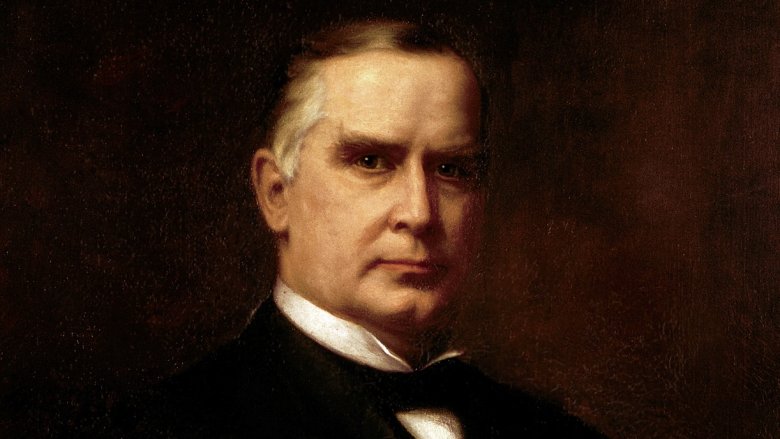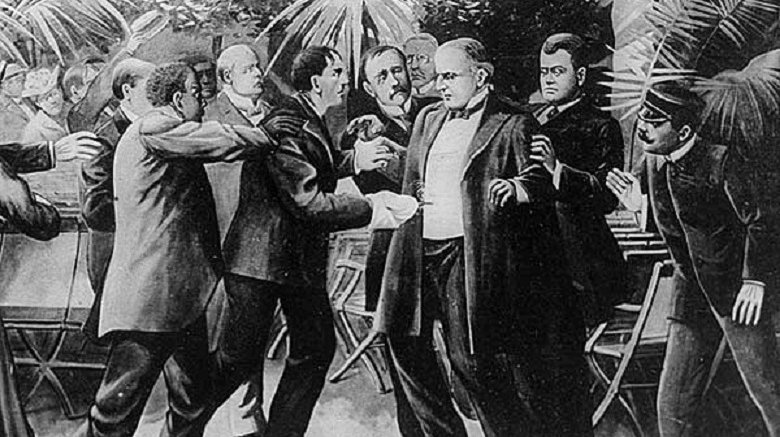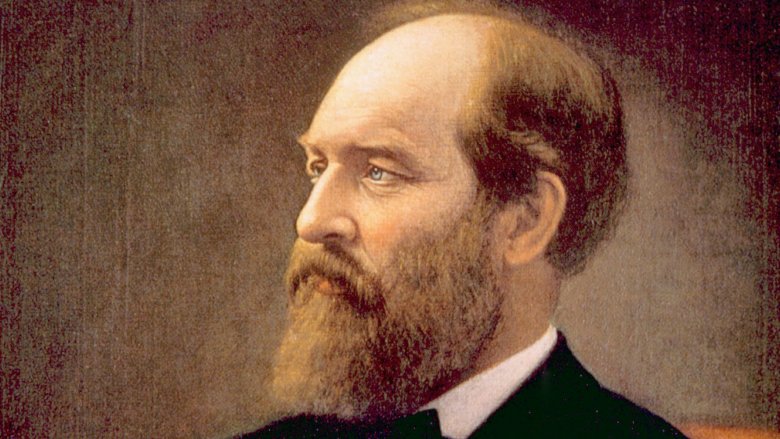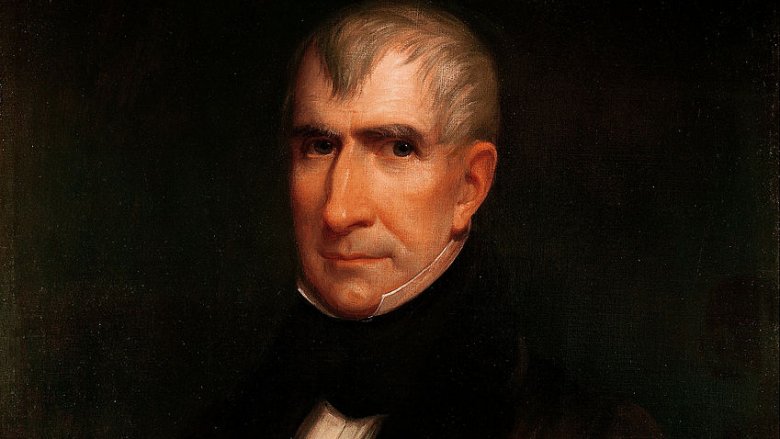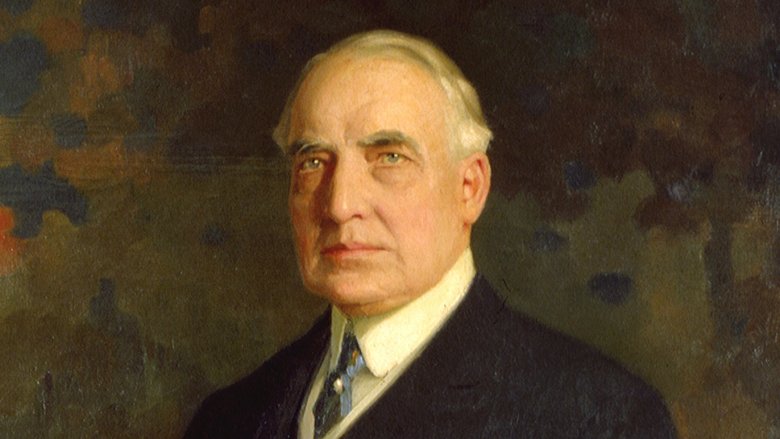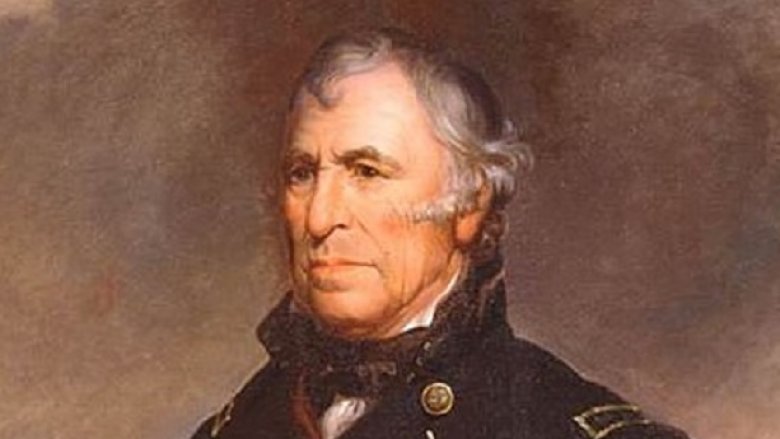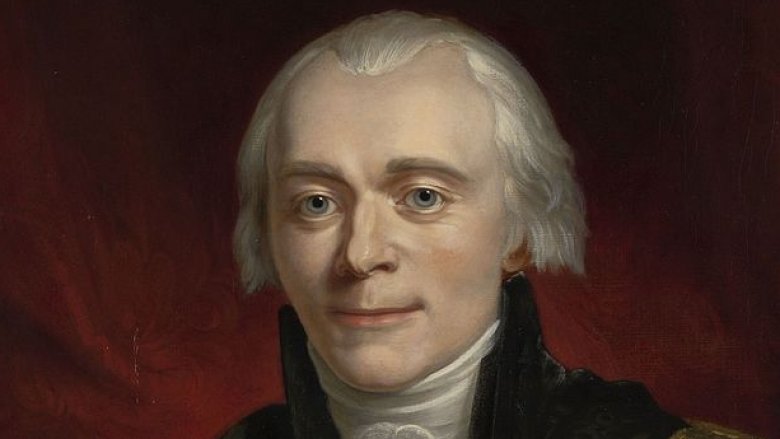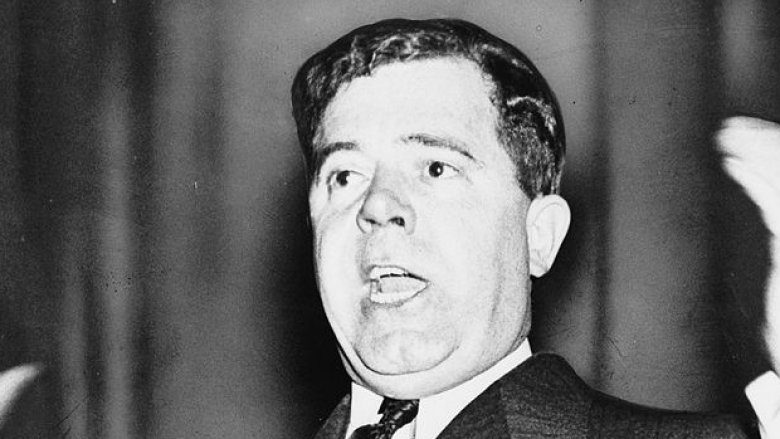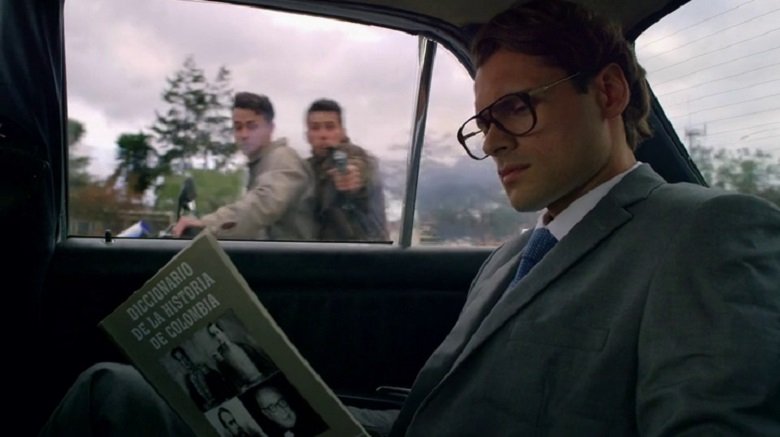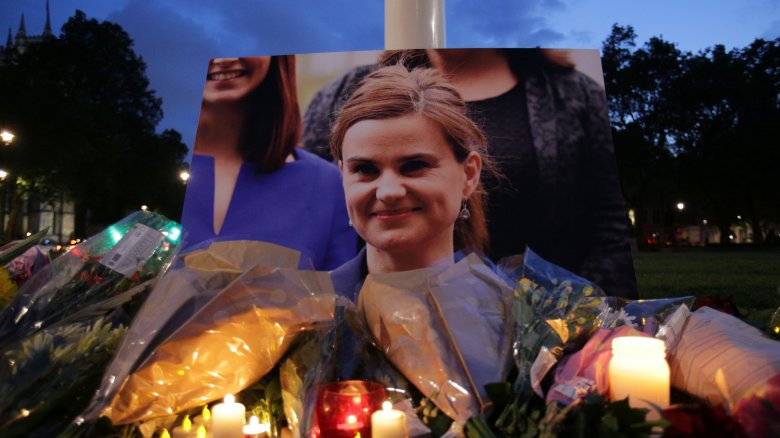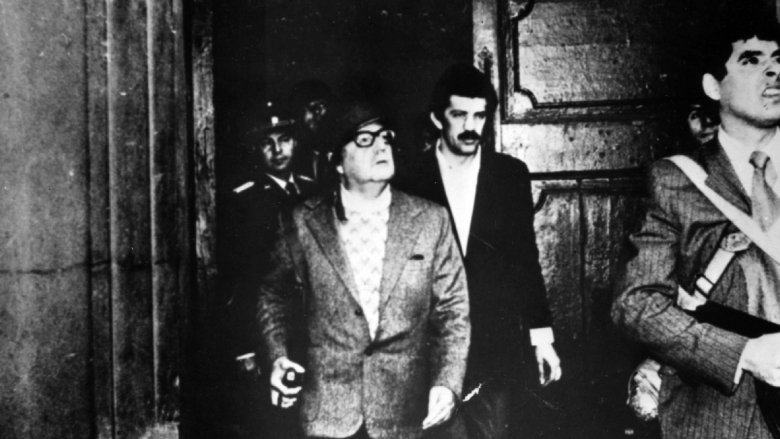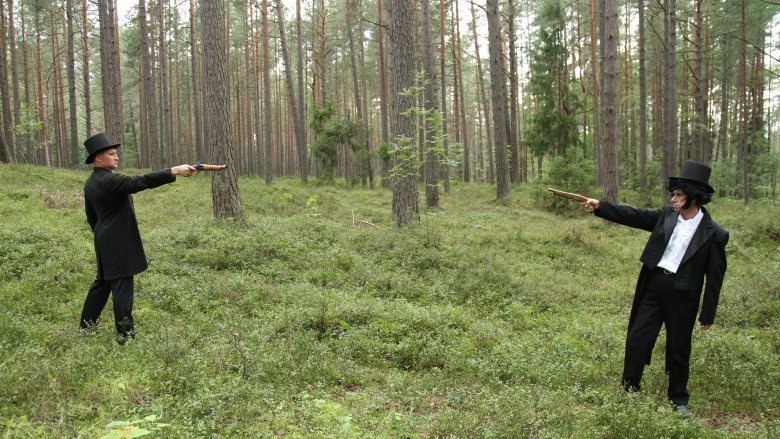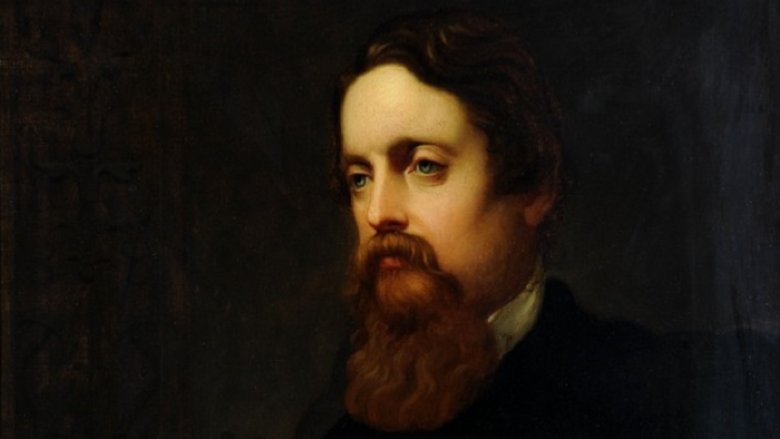Politicians Who Died While Holding Office
They say every political career is doomed to end in failure, but what happens when you don't live long enough to hit that milestone? The history books are full of people who took office and started realizing their ambitions, only to get shot or stabbed or Black Death-ed to death before getting anywhere. Abraham Lincoln famously chose a really crappy time to indulge in some light culture, just as John F. Kennedy famously chose a really crappy time to indulge in some recreational driving around the Dallas area. And that's not even including guys like Julius Caesar, or the multitude of ancient kings, queens, and dictators killed by their rivals.
But what about the guys you don't hear so much about? The politicians who were no less ambitious but just happened to die before leaving their mark on history? These are the presidents, prime ministers, and premiers who seemed shoo-ins for immortality by dying on the job, only to have everyone immediately forget them anyway.
William McKinley endured the most predictable assassination in presidential history
Twice. That's the number of times William McKinley's personal secretary, George B. Cortelyou, canceled the president's meet-and-greet on September 6, 1901, because he worried the commander in chief would be assassinated. Both times, the public-loving McKinley reinstated it, which must have made Cortelyou suffer history's worst case of "I told you so!" Just as Cortelyou had predicted, McKinley's visit to the Pan-American Exposition ended with anarchist Leon Czolgosz shooting the president. He died of blood poisoning eight days later (via History).
All of which raises the question: Why would anyone want to shoot the assassinated president no one remembers? It's kinda hard to say. At the time he was shot, McKinley was the most popular president in decades. He'd led the U.S. to victory in the Spanish-American War, instituted tariffs that kept organized labor going, and won reelection in a landslide just the year before. Czolgosz claimed he shot McKinley for the working man, but it's more likely he just wanted to outdo the anarchist who'd assassinated Italy's Umberto I the year before.
Speaking of the assassination, it was one of the most dignified in American history. After Czolgosz shot McKinley, the dying president personally stopped the crowd from beating his assassin to death, before asking Cortelyou to break the news to his wife gently. Now that's how a gentleman dies.
President Garfield's death was way nastier than you ever imagined
Before he became famous as a fat cat who loves lasagne, James Garfield was chiefly famous for being the other assassinated president no one remembers. On July 2, 1881, Garfield had been on the job only four months when he decided to catch a train up to New England for a summer break. He was in the train station waiting room when a failed writer named Charles Guiteau came up behind him and shot him twice.
As PBS describes, this was the point at which things got truly ugly.
Garfield would live another 80 days. But what a horrendous 80 days. In the immediate aftermath of his shooting, a guy with the exceptionally unlikely name of Dr. Doctor dug his fingers into the wound, trying to pull the bullet out without washing his hands. He wasn't the only one. Over the next few days, the atrocious hygiene standards of the 19th century conspired to get as much muck inside Garfield's abdomen as possible. An infection took hold, and the rest was gruesome history.
All the way until September 19, 1881, Garfield was wracked by a fever that kept getting worse. His bullet hole became a 20-inch gash leaking pus. He lost nearly 100 pounds. By the time he died, the infection was so awful that his last words were simply him screaming "this pain, this pain!" over and over.
William Henry Harrison's jerky past sorta justifies his early death
If there was one thing the ninth president of the USA liked doing, it was killing Native Americans. According to History, William Henry Harrison was so associated with pulverizing Indian cultures into the dust that he actually used it in his election campaign.
In 1794, Harrison helped the U.S. Army crush the Shawnees and Miamis at the Battle of Fallen Timbers, transforming Ohio from the uncivilized wasteland it was back then into the uncivilized wasteland it is today. (Apologies to any Ohioans reading.) In 1800, he became governor of Indiana and used his position to screw tribes out of millions of acres of land, and, in 1811, he again delivered a punch to the face of Shawnee dignity at the Battle of Tippecanoe. Oh, and he spent the War of 1812 fighting Indian tribes aligned with the British because William Henry Harrison could somehow turn any war into a massacre of Native peoples.
So, when Harrison became president in 1841, at the age of 68, it must have looked like things were gonna be pretty bad for Indian tribes. While they totally would be, it wasn't due to Harrison. As you may remember from history class, Harrison celebrated his victory with the longest inaugural speech in U.S. history ... before succumbing to pneumonia and dying after the shortest presidency — a mere four weeks.
Warren G. Harding's death was an excellent career move
Warren G. Harding's last words came as he lay in bed and whispered to his wife "that's good, go on." While that seems like the setup for a salacious tale of sex and death, in reality Harding's wife was reading aloud an article about him in the paper. The reason it pleased Harding so much was because it was so rare in the summer of 1923 for anyone to write anything nice about the 29th president. As PBS explains, summer 1923 was the exact same time the Teapot Dome scandal exploded.
It's all pretty complicated, but it revolved around oil reserves near a place called Teapot Dome in Wyoming. Basically, it was a massive corruption scandal that implicated about 90 percent of Harding's cabinet, plus the big G himself, and cost the taxpayer millions. So it was with excellent timing that Harding died of a suspected heart attack or stroke on August 2. While all his cabinet buddies faced jail time, he got to lie in a comfy coffin on Capitol Hill.
Harding's death was also excellent news for the Republican party. Vice President Calvin Coolidge took over and was untainted by any of the Harding scandals, allowing the party to survive the 1924 election intact. Perhaps no wonder some still insist Harding was secretly poisoned.
Zachary Taylor was nearly the action hero president
Most people remember Zachary Taylor for dying only 16 months into his presidency. Had he lived longer, it's likely that today we'd all remember the 12th president for being a crazy badass. Not only was Taylor a war hero and incredible leader of men, he was a fervent anti-slavery advocate who threatened to, in the words of History, "personally lead a military attack against any state that threatened to secede from the Union."
That "personally" part wasn't just blowing smoke. Taylor had served in the army for decades. According to Britannica, he'd been present at the kickoff of the Mexican-American War and helped end it by winning the Battle of Buena Vista against an army that outnumbered his three to one. He'd even allowed the Mexican Army a generous eight-week armistice to regroup after losing one battle, thereby proving both his humanitarian credentials and sheer love of fighting.
So when the Whig Party came to pick its candidate for 1848, they decided Taylor was the only one who could possibly win the country. And he did, becoming the last Whig to win the presidency in U.S. history. Not that the elation lasted long. On July 4, 1850, Taylor drank some water that may have been tainted by cholera. He died just days later.
Spencer Perceval was assassinated and no one in his country can remember him
If you need final proof that the British are polite to the point of madness, look no further than the story of John Bellingham. On May 11, 1812, Bellingham waited in the House of Commons until Prime Minister Spencer Perceval arrived before pulling out a gun and shooting him dead. According to the Independent, when Bellingham was arrested, he actually apologized. Not as in "Oh God, what have I done?!" but more like "terribly sorry, old chap, but I had to do it. Tea, anyone?"
Bellingham's hilarious politeness isn't the only forgotten aspect of Spencer Perceval's death. The whole thing has slipped from British memory. The only Perceval statue to stand in the whole of the U.K. is in ex-factory town Northampton. Meanwhile, Abraham Lincoln, who, y'know, led a completely different nation, has a statue outside Westminster Parliament.
This is a darn shame because, as History Today shows, the circumstances around Perceval's assassination were marvelously melodramatic. Bellingham (wrongly) thought the British government had allowed him to be falsely imprisoned in Russia for five years, so he plotted to kill the prime minister. Perceval, for his part, contrived to make his last words a shrieked "I am murdered!" Finally, Perceval was so unpopular that a mob tried to storm Parliament and free Bellingham, believing he was a master revolutionary and not some confused ex-convict.
Huey 'Kingfish' Long and the mystery assassination
Elected Louisiana's youngest governor at the age of 34, Huey Long was a modern populist born a century early. As governor, he abolished taxes and gave away free stuff, while also putting himself in control of appointing every policeman, teacher, and public official in the state. He called himself the Kingfish and was openly corrupt, saying he bought his opponents "like a sack of potatoes, shuffled them like a deck of cards," thus also proving himself the greatest mangler of metaphors this side of Zapp Brannigan.
By September 1936, Long was trying to ram through legislation that would allow him to remove a single uncooperative judge: Judge Benjamin Henry Pavy. This would prove to be his undoing. On September 8, Pavy's son-in-law, Carl Weiss, walked up to Long outside the Capitol building and shot him dead (via Politico). Weiss was shot over 30 times by Long's bodyguards.
At least, that's the official version. In 2015, the Daily Beast reported on long-hidden evidence that Long's bodyguards peppered Weiss with bullets after Weiss punched the governor, only for one of those bullets to ricochet off a marble pillar and kill Long. Since only Long supporters were present at the shooting, and the inquest was heavily controlled by his network, a cover-up isn't exactly impossible.
Rodrigo Lara discovered the hard way not to mess with Pablo Escobar
In 1984, Rodrigo Lara was handed what must have been the worst political post in the entire world. He was made Minister for Justice in Colombia, just as Pablo Escobar's Medellin cartel was launching an all-out war on the state. Lara took one look at the lemons life had handed him and used them to build his own gallows. Over a few short months, Lara hounded the recently elected Escobar out of congress, began extraditing drug traffickers to the USA, and set fire to over a billion dollars' worth of cocaine (via Guardian). You can guess how Escobar reacted.
On April 30, 1984, Lara was being driven through Bogota when he was shot dead. Officially, a hit man from the Medellin cartel drove up beside the car and let rip with an automatic weapon, but unofficially? Escobar had so infiltrated the Colombian state that it's suspected Lara's bodyguards may have simply turned around in their seats and shot him (according to Colombia Reports).
As you'll know if you've watched Netflix's Narcos (pictured above), the death of Lara was just the beginning. Soon Escobar was bombing Bogota, downing airliners, kidnapping members of the elite, and carrying out assassinations (via Telegraph). The Colombian government tried to fight back, but it wasn't until 1993 that Escobar was finally killed on a Medellin rooftop. By then, he'd killed dozens more politicians than just Rodrigo Lara, and thousands more regular folk.
Jo Cox's murder proved hatred isn't dead
Of all the politicians in this article, Jo Cox is the most recent to have died, and perhaps the most tragic. An MP for the British Labour Party, Cox was a supporter of immigration and Britain's membership of the European Union. For unemployed gardener Thomas Mair, this was too much. A white supremacist who thought immigration and illegal immigration were the same thing, he walked up to Cox during a public meeting in 2016 and shot her twice before stabbing her. As he did so, he shouted both "keep Britain independent" and "Britain first!" (via the Guardian).
Mair was the first high-profile far right terrorist to be sentenced in Britain since David Copeland was convicted of killing three people and injuring over 100 with pipe bombs that targeted immigrant and LGBT communities in 1999. He was also the first person to kill a sitting British MP since the IRA blew up Ian Gow with a car bomb 26 years earlier. In light of these dubious achievements, he was handed a life sentence, the longest term a judge can give under British law.
The immediate aftermath of Cox's assassination triggered some serious soul searching in Britain, with her family suggesting the vile rhetoric around the Brexit referendum had contributed to Mair's actions. Sadly, this didn't last. In September 2018, Cox's sister gave a depressing speech in which she claimed her sister's death "seems in vain."
Salvador Allende: machine guns and explosions
It was mid-morning when the first missile slammed into the presidential palace in Santiago, Chile. Inside, the first democratically elected Marxist leader in Latin American history, Salvador Allende (above, with glasses), was trapped. President of Chile since 1970, Allende had already seen off one coup attempt, plus a horde of hare-brained CIA plots to oust him. This time was different. This time, tanks were rolling through the streets, military checkpoints were blocking exits from the city, and fighter jets were raining missiles down onto him and his frightened retinue. It was September 11, 1973, and General Pinochet's military takeover was in full swing.
But first, the dictator would have to get rid of Allende. It wasn't as easy as you might think. Offered safe passage out the country, Allende refused and holed up in his palace. As Time explains, he armed himself with an AK-47 and continued to broadcast messages to his supporters, even as explosions shook the building and pro-Pinochet troops opened fire.
Dramatic as this was, the ending was sadly less "action movie showdown" and more "terrible tragedy." As the palace fell, Allende instructed his remaining guards to surrender. He then made his way to the building's Independence Hall and committed suicide, shooting himself through the jaw (via Guardian). Chile would be under the Pinochet dictatorship for the next 17 years.
Spencer Pettis and the stupidest duel in history
Unless you are seriously boned up on Missouri history, you've likely never heard of Spencer Pettis. The fourth Missouri secretary of state, and later a U.S. Representative, Pettis lived in the early 19th century, a time so distant that any politician who rose to any rank below president has basically been forgotten. But Pettis does have one claim to fame: He died in one of the stupidest duels in history.
The Dictionary of Missouri Biography has the story. Pettis had spent his 1831 reelection campaign insulting anyone he could think of. Unfortunately, this happened to include Thomas Biddle's brother. When Biddle learned of the insult, he tracked Pettis down and beat him furiously with a whip. Although Biddle was arrested, this was the Antebellum South, and no man could call himself a man if he let another man disrespect his honor. So Pettis challenged Biddle to a duel. Biddle accepted, provided they fire from a distance of 5 feet.
The Missouri State Archives office suggests Biddle was hoping his request was so absurd Pettis would feel he could back down without besmirching his honor. Nope. Pettis took the challenge, and both men wound up back-to-back on a sandbank on August 26, 1831, pistols drawn. At the signal they both turned and fired from point-blank range, killing each other. At least they died with "honor" intact ... supposedly?
Irish Republicans kept on killing British MPs
In the long history of Britain, only eight MPs have been assassinated while in office. One was Prime Minister Spencer Perceval, killed by an angry madman. Another was Jo Cox, killed by a white supremacist. The other six? All murdered by Irish Republicans.
The first happened way back in 1882, when Chief Secretary of Ireland (then a British province) Lord Frederick Cavendish, above, was stabbed to death in a Dublin park by a group known as the Irish Invincibles (via Britannica). The second came in the opening days of the Irish Civil War in 1922, when Ulster unionist politician Sir Henry Wilson was shot by gunmen from the original Irish Republican Army. After that, the next four came in a cascade. Between 1979 and 1990, Airey Neave was blown up with a car bomb, Robert Bradford was shot dead, Anthony Berry was killed during the Brighton Hotel bombing that nearly killed Margaret Thatcher, and finally Ian Gow was exploded by a car bomb (via Guardian). Wow, no wonder people were terrified of the IRA.
Most of the killings happened during The Troubles, when Irish republican and unionist groups ran riot in Northern Ireland, killing around 4,000 in 30 years. They only stopped with the Good Friday Agreement of 1998 that ended the guerrilla war.
